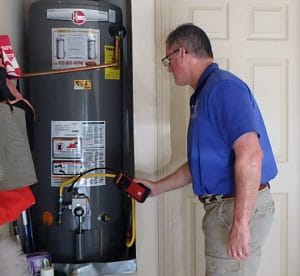The Essential Guide to Home Inspections: Expert Insights on Protecting Your Investment in Plano, Texas
When considering the purchase of a home, it’s crucial to understand that what you see might not be the full picture. Home sellers often showcase properties with gleaming hardwood floors, granite countertops, and other appealing features. However, this polished appearance does not necessarily mean the home is free from underlying issues. Potential problems such as broken appliances, foundation cracks, and faulty plumbing systems may require a thorough evaluation to uncover. This is where a professional home inspection becomes indispensable. Read on to learn more about the importance of home inspections and their role in ensuring a wise investment.
The Importance of Home Inspections
A Home Inspection is a vital step in the real estate process that provides a detailed examination of the physical condition of a property. Unlike a simple walkthrough, a professional home inspector assesses the safety and integrity of a house, including the structure, roof, electrical systems, plumbing, and more, delivering a comprehensive report on their findings. This detailed assessment helps buyers make well-informed decisions and ensures there are no costly surprises after the purchase.
Home Inspections vs. Appraisals
It is essential to recognize the distinct roles played by home inspections and appraisals. While both are critical to the property buying process, they serve different purposes. An appraisal focuses on determining the property’s market value rather than its condition. Understanding this difference is key to setting realistic expectations and making informed decisions. A home inspection provides insights into the property’s safety and functionality, while an appraisal evaluates its monetary worth.
Home Warranty vs. Home Inspection
For homeowners and potential buyers, understanding the differences between investing in a Home Warranty and a Home Inspection is crucial. A home warranty can cover the cost of repairs or replacements of appliances and systems in the house after the purchase. In contrast, a home inspection can save you from investing in a property with costly hidden issues. Making the right choice hinges on understanding the unique benefits of each option. A home inspection offers peace of mind by revealing the true condition of a property before you commit to buying, while a home warranty provides ongoing protection after the purchase.
Home Inspections by Stonebriar Property Inspections
A home inspection is vital if you want to buy a home. No matter how perfect the home looks, it might have major defects that only a home inspection can reveal. To confirm the condition and actual state of the property, you should hire an experienced home inspector to conduct a thorough assessment of the house. Through a comprehensive home inspection, you know the home’s true attributes and vulnerabilities. This will not only save money but guarantee durability. Get in touch with Stonebriar for accurate and professional home inspection services!


